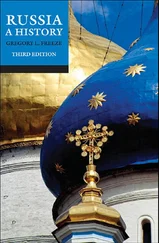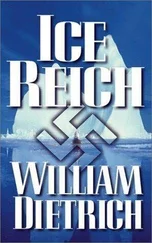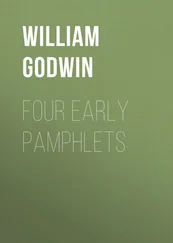William Dixon - Free Russia
Здесь есть возможность читать онлайн «William Dixon - Free Russia» — ознакомительный отрывок электронной книги совершенно бесплатно, а после прочтения отрывка купить полную версию. В некоторых случаях можно слушать аудио, скачать через торрент в формате fb2 и присутствует краткое содержание. Жанр: foreign_antique, foreign_prose, на английском языке. Описание произведения, (предисловие) а так же отзывы посетителей доступны на портале библиотеки ЛибКат.
- Название:Free Russia
- Автор:
- Жанр:
- Год:неизвестен
- ISBN:нет данных
- Рейтинг книги:3 / 5. Голосов: 1
-
Избранное:Добавить в избранное
- Отзывы:
-
Ваша оценка:
- 60
- 1
- 2
- 3
- 4
- 5
Free Russia: краткое содержание, описание и аннотация
Предлагаем к чтению аннотацию, описание, краткое содержание или предисловие (зависит от того, что написал сам автор книги «Free Russia»). Если вы не нашли необходимую информацию о книге — напишите в комментариях, мы постараемся отыскать её.
Free Russia — читать онлайн ознакомительный отрывок
Ниже представлен текст книги, разбитый по страницам. Система сохранения места последней прочитанной страницы, позволяет с удобством читать онлайн бесплатно книгу «Free Russia», без необходимости каждый раз заново искать на чём Вы остановились. Поставьте закладку, и сможете в любой момент перейти на страницу, на которой закончили чтение.
Интервал:
Закладка:
Appeal was made to Prince Gagarine, governor of Archangel: but Gagarine, though he laughed at these port rules and their forms, had no deals and grain of his own on board the ships. Gospodin Sredine, a keen-witted master of the customs, tried to open the ports and free the ships by offering to put officers on the new channel; but the police were – the police. In vain they heard that the goods might spoil, that the money they cost was idle, and that every ruble wasted would be so much loss to their town.
To my question, "How was it arranged at last?" a skipper, who was one of the prisoners in the port, replies, "I will tell you in a word. We sent to Petersburg; the minister spoke to the Emperor; and here is what we have heard they said. 'What's all this row in Archangel about?' asks the Emperor. 'It is all about a new mouth being found in the Dvina, sir, and ships that want to sail down it, sir, because the old channel is now shoaled up, sir.' 'In God's name,' replied the Emperor, 'let the ships go out by any channel they can find.'"
Whether the thing was done in this sailor-like way, or by the more likely method of official report and order, the Maimax mouth was opened to the world in spite of the port police and their printed rules.
A Hebrew of the olden time would have called this sea a whited sepulchre. Even men of science, to whom wintry storms may be summed up in a line of figures – so many ships in the pack, so many corpses on the beach – can find in the records of this frozen deep some show of an excuse for that old Lapland superstition of the Golden Hag. The year before last was a tragic time, and the memory of one dark day of wrack and death has not yet had time to fade away.
At the end of June, a message, flashed from the English consul at Archangel – a man to represent his country on these shores – alarmed our board of trade by such a cry for help as rarely reaches a public board. A hundred ships were perishing in the ice. These ships were Swedes, Danes, Dutch, and English; luggers, sloops, corvettes, and smacks; all built of wood, and many of them English manned. Could any thing be done to help them? "Help is coming," flashed the wires from Charing Cross; and on the first day of July, two steamers left the Thames to assist in rescuing those ships and men from the Polar ice. On the fifteenth night from home these English boats were off Cape Gorodetsk on the Lapland coast, and when morning dawned they were striving to cross the shallow Archangel bar. They could not pass; yet the work of humanity was swiftly and safely done by the English crews.
That fleet of all nations, English, Swedish, Dutch, and Danish, left the Dvina ports on news coming up the delta that the pack was breaking up in the gulf; but on reaching that Corridor through which we have just now come, they met the ice swaying to and fro, and crashing from point to point, as the changing wind veered round from north to south. By careful steering they went on, until they reached the straits between Kanin Cape and Holy Point. The ice in their front was now thick and high; no passage through it could be forced; and their vessels reeled and groaned under the blows which they suffered from the floating drifts. A brisk north wind arose, and blowing three days on without a pause, drove blocks and bergs of ice from the Polar Ocean down into the gut, forcing the squadrons to fall back, and closing up every means of escape into the open sea. The ships rolled to and fro, the helmsmen trying to steer them in mid-channel, but the currents were now too strong to stem, and the helpless craft were driven upon the Lapland reefs, where the crews soon saw themselves folded and imprisoned in the pack of ice.
Like shots from a fort, the crews on board the stronger ships could hear in the grim waste around them hull after hull crashing up, in that fierce embrace, like fine glass trinkets in a strong man's hand. When a ship broke up and sank, the crew leaped out upon the ice and made for the nearest craft, from which in a few hours more they might have to fly in turn. One man was wrecked five times in a single day; each of the boats to which he clung for safety parting beneath his feet and gurgling down into the frozen deep.
When the tale of loss was made up by the relieving steamers, this account was sent home to the Board of Trade:
The number of ships abandoned by their crews was sixty-four; of this great fleet of ships, fourteen were saved and fifty lost. Of the fifty ships lost in those midsummer days, eighteen were English built and manned; and the master mentions with a noble pride, that only one ship flying the English flag was in a state to be recovered from the ice after being abandoned by her crew.
It would be well for our fame if the natives had no other tales to tell of an English squadron in the Frozen Sea.
CHAPTER III.
THE DVINA
By the Maimax arm we steam through the delta for some twenty miles; past low, green banks and isles like those in the Missouri bed; though the loam in the Dvina is not so rich and black as that on the American stream. Yet these small isles are bright with grass and scrub. Beyond them, on the main-land, lies a fringe of pines, going back into space as far as the eye can pierce.
The low island lying on your right as you scrape the bar is called St. Nicolas, after that sturdy priest, who is said to have smitten the heretic Arius on his cheek. No one knows where this Nicolas lived and died; for it is clear from the Acta, that he had no part in the Council of Nice. The Book of Saints describes him as born in Liki and living in Mira; whence they call him the Saint of Mirliki; but not a line of his writing is extant, and the virtues assigned to him are of opposing kinds. He is a patron of nobles and of children, of sailors, of cadgers, and of pilgrims. Yet, in spite of his doubtful birth and genius, Nicolas is a popular saint. Poor people like him as one who is good to the poor; a friend of beggars, fishermen and tramps. A Russian turns to him as the hope of starving and drowning men; so that his name is often heard, his image often seen, in these northern wilds; more than all else, on the banks of rivers and on the margins of the Frozen Sea. A peasant learns with delight from his Book of Saints (his Bible, Epos, Drama, Code, and History all in one) that Nicolas is the most potent saint in heaven; sitting on the right hand of God; and having a cohort of three hundred angels, armed and ready to obey his nod. A mujik asked a foreign friend to tell him who will be God when God dies? "My good fellow," said he, smiling, "God will never die." At first the peasant seemed perplexed. "Never die!" and then a light fell on him. "Yes," he retorted, slowly; "I see it now. You are an unbeliever; you have no religion. Look you; I have been better taught. God will one day die; for He is very old; and then St. Nicolas will get his place."
Though he is common to all Russians – adored on the Dnieper, on the Volkhof, on the Moskva, no less than on the Dvina – he is worshipped with peculiar zeal in these northern zones. Here he is the sailor's saint, the adventurer's help; and all the paintings of him show that his watchful eyes are bent in eager tenderness upon the swirl and passion of the Frozen Sea. This delta might be called his province; for not only was the island on your right called after him, but also the ancient channel, and the bay itself. The oldest cloister in the district bears his name.
On passing into the Maimax arm, your eyes – long dimmed by the sight of sombre rock, dark cloud, and sullen surf – are charmed by soft, green grass and scrub; but the sight goes vainly out, through reeds and copse, in search of some cheery note of house and farm. One log hut you pass, and only one. Two men are standing near a bank, in a little clearing of the wood; a lad is idling in a frail canoe, which the wash of your steamer lifts and laves; but no one lodges in the shed; the men and boy have come from a village some miles away. Dropping down the river in their boat to cut down grass for their cows, and gather up fuel for their winter fires, they will jump into their canoe at vespers, and hie them home.
Читать дальшеИнтервал:
Закладка:
Похожие книги на «Free Russia»
Представляем Вашему вниманию похожие книги на «Free Russia» списком для выбора. Мы отобрали схожую по названию и смыслу литературу в надежде предоставить читателям больше вариантов отыскать новые, интересные, ещё непрочитанные произведения.
Обсуждение, отзывы о книге «Free Russia» и просто собственные мнения читателей. Оставьте ваши комментарии, напишите, что Вы думаете о произведении, его смысле или главных героях. Укажите что конкретно понравилось, а что нет, и почему Вы так считаете.











